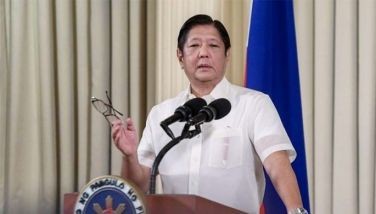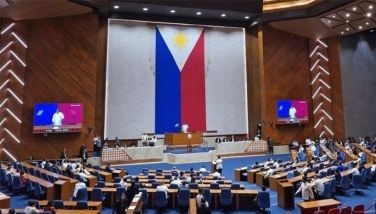A European blueprint for diplomacy and governance with AI
Artificial intelligence (AI) is not just a tool for governments and institutions; it is a force capable of shaping the future of international relations, governance and even our daily lives. Governments around the world are leveraging AI to improve public services and make governance more efficient. From streamlining administrative tasks to enhancing disaster preparedness and environmental protection, AI’s potential is vast. In Europe, AI is already helping cities manage traffic, detect fraud in financial transactions and improve public health care systems. With the increased use of AI in public governance, we find ourselves at the crossroads of technological innovation and global cooperation.
Diplomacy has always been about fostering relationships, understanding and bridging differences. Now, AI emerges as a powerful tool in ways we never imagined. Real-time translation tools can break down language barriers, AI-driven analytics can help diplomats predict conflicts before they escalate and AI platforms can make international cooperation more inclusive and transparent.
However, AI also poses significant risks, including misinformation, cybersecurity threats and conflict escalation. These risks are common to both Europe and the Philippines.
AI-driven deepfakes and fake news can spread misleading political narratives, flood social media with propaganda and influence foreign policy discussions. Without proper regulation and ethical oversight, AI could even aggravate geopolitical tensions. Though naturally, risks are always part of modernization, these ones especially stress the crucial role of today’s younger generation – the first to grow up in an AI-enabled world. Their critical thinking, digital literacy and responsible use of technology ought to serve as the frontline defense against misinformation.
The EU is proud to foster ethical, transparent and democratic AI development. In 2024, the EU adopted the Artificial Intelligence Act, the world’s first comprehensive AI law. This landmark legislation sets clear rules to ensure AI is safe, non-discriminatory and respects fundamental rights. It introduces a risk-based approach, classifying AI applications based on their societal impact. High-risk applications, such as those in law enforcement or critical infrastructure, must meet strict transparency and accountability standards, while low-risk uses, like chatbots, are minimally regulated. The Act prohibits harmful practices like social scoring and indiscriminate biometric surveillance.
By setting a global benchmark, the AI Act ensures technological progress without compromising fundamental rights. It reinforces the EU’s commitment to human-centric AI, prioritizing fairness, privacy and non-discrimination, while encouraging innovation with legal clarity and trust among developers, businesses and consumers. This legislation influences not only Europe but also international regulations. As the world enters an era of diplomacy and governance featuring AI, international cooperation is essential. Hence, the EU remains committed to collaborating with global partners, including the Philippines, to promote responsible AI policies that benefit all.
Although a significant threat posed by AI is founded in its use to create falsehoods, it is also a powerful tool to combat it. Fact-checking algorithms, AI-driven content verification and responsible digital policies help curb misinformation. For instance, the EU Code of Practice on Disinformation is a leading initiative allowing the collaboration among tech companies, civil society and governments in ensuring accountability and truth on digital platforms. Alongside this, the EU has introduced a major legislative framework aimed at safeguarding a digital environment from the threats of hate speech, disinformation and foreign information manipulation and interference (FIMI). The two key flagship legislative initiatives in this framework are the Digital Services Act and the Digital Markets Act.
The Digital Services Act holds online platforms accountable for the content they host, introducing stricter rules to combat illegal content, disinformation and cyber threats. It ensures that digital spaces are transparent and prevent young users from exposure to harmful or misleading content. At the same time, the protection of fundamental rights like freedom of expression is a core element of the legislation, which is why it includes several important safeguards to prevent it from being misused as a tool for censorship.
On the other hand, the Digital Markets Act focuses on fair competition in the digital economy, targeting large tech companies to prevent monopolistic practices. It introduces new rules to promote innovation, prevent unfair advantages and give users more control over their data.
Together, these initiatives, combined with the AI Act, create a robust framework regulating digital services and markets. As a result, the EU-founded AI ecosystem is able to prioritize technology that serves people while fostering a competitive and ethically innovative digital economy.
AI has and will continue to transcend borders and no single country or region can tackle its challenges alone. International cooperation is necessary and this is exactly why the EU is committed to collaborating with partners like the Philippines to establish global AI governance standards. Together, we can exchange best practices, support research and empower young innovators to drive AI solutions for governance, climate action and social development. AI should bridge us, not divide us, in addressing the world’s most pressing issues. This is not just a technology, but it is the future. It does not matter whether AI is inherently good or bad, the challenge lies in how we choose to shape and wield it as a tool, not as a weapon. As we steer its role in diplomacy and governance, let us collaborate to ensure it drives progress, peace and prosperity. The future of AI is not just in our hands, it is in yours too.
* * *
Massimo Santoro is the European Union Ambassador to the Philippines.
- Latest
- Trending



























